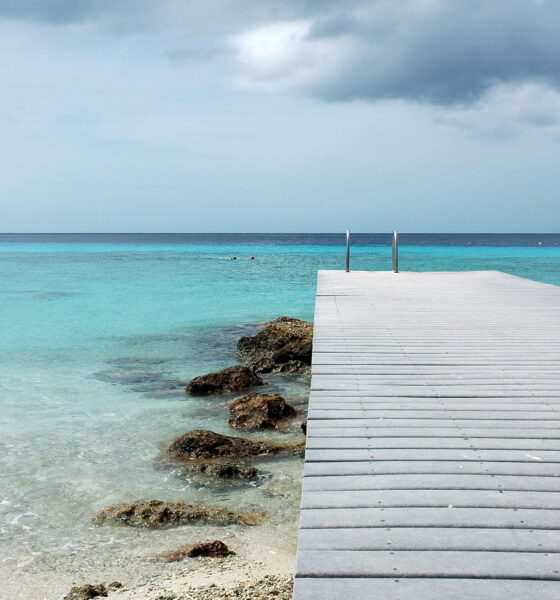

Features
Sustainable tourism: a passing fad or way of life?
Far from the new fangled concept that many see it to be, sustainable tourism has been a developing notion since the 1960s and the green movement.
With people slowly growing to understand the consequences that their lifestyle inflicts upon the environment, it’s a term that envelopes an industry committed to reducing environmental and cultural impact whilst generating income for the locality.
To put it simply, it’s an idea that preserves the world. An idea that means your grandchildren will be able to experience the same beautiful locations that you have had the privilege of visiting.
It’s really about tourism that is simply better. Better for destinations, better for people, better for the environment – Sue Hurdle, chief executive of the Travel Foundation
It would be impossible to explain sustainable tourism without mentioning carbon offsetting – a topic that over the past few years has grown in popularity with its constant portrayal in the media. It is however, sometimes seen as somewhat of a quick-fix for travel’s dark side. Chairman of the Association of Independent Tour Operators (AITO), Chris Breen described it as “only a small part of the picture”.
There’s a mis-portrayal in the media that sustainable tourism can only be achieved by boycotting planes and long distance trips, swapping luxury for rustic, and not touching the “real” parts of the world. But this is a myth.
Sustainable tourism is not about making a list of things we cannot do; it’s about improving the ways in which we do them, and ensuring that in 20 years times, those opportunities will still be present.
It wasn’t that long ago that travel by plane was an exciting new adventure, where people flocked to home-away-from-home replicas and were amazed merely by the change in climate. But as people began to take travel for granted, demands have also changed. “People now, do want something more than just go abroad”, according to Wild Frontiers founder, Jonny Bealby.
Wild Frontiers, Adventure Alternative, Responsible Travel and Authentic Travel are just a few examples of travel companies that now specialise in ethical holidays, a type of vacation with much more to gain than a tan. As a culture, we are becoming more aware of our lifestyle choices, and with green businesses, organic produce, energy saving schemes, and hefty awareness projects implemented through schools, sustainable tourism is a logical step that goes hand in hand with people’s desire to feel proud of themselves for these small considerations.
I think the word ‘sustainable’ talks about the future, whereas responsible doesn’t necessarily take that into account – Chris Breen, chairman of AITO
Another uphill battle that sustainable tourism struggles against is pricing. It seems that the assumption is that as soon the words ‘experience’ or ‘eco-friendly’ are associated with our vacation, we assume it’ll incur a higher cost. But the tourism industry realises the current high demand placed on value for money, and like any other industry, tailors its services to the desires of its clientele, constantly striving to keep sustainable tourism an accessible option to all.
Trekking through Kenya or Costa Rica, visiting the 10,000 miles of coast in Australia, experiencing life in Africa, or riding through some of the most remote locations on the globe doesn’t have to (literally) cost the Earth. In fact, as sustainable tourism is built on the concept of reinvestment, it’s likely to be one of the only vacations you will encounter where you will be able to see where each of your pennies was spent!
With tourism the principle export in 30% of developing countries, sustainable tourism can guide that money into the right hands. A clear difference between the idea of responsible tourism and sustainable tourism is the strong focus on reinvestment and the preservation of not only the environment, but the people, the traditions, and the industry itself.
I think ‘sustainable tourism’ is a difficult concept because we all know there are parts of tourism that are inherently unsustainable – Justin Francis, managing director of Responsible Travel
It’s true that people, the Earth, and demands will change, as there will always be uncontrollable aspects to consider. But as Chris Breen says, “If a company cannot be bothered to offer sustainable holidays, by definition it must have a limited lifespan. If what a company is offering is destroying the very place it relies upon, then the product is finite”. This is where Sustainable Tourism strikes home.
With a philosophy that not only reduces the negative effects of our travel, but increases the positive ones for both client and company alike, it’s hard to argue with the logic behind it. And with high value placed on reinvesting into the industry, locality, and culture – the aspects that make a trip truly unique – you can be sure that sustainable tourism is no passing fad.
For a more in-depth look into the industry, and to hear the thoughts of some of the sector’s leading lights, download Blue & Green Tomorrow’s Guide to Sustainable Tourism for free.
Joanna Keeton is in the final year of an advertising and PR degree at the University of Lincoln. She has a keen interest in pursuing a career in journalism and events, and has a passion for travel and writing.


 Environment12 months ago
Environment12 months agoAre Polymer Banknotes: an Eco-Friendly Trend or a Groundswell?

 Features11 months ago
Features11 months agoEco-Friendly Cryptocurrencies: Sustainable Investment Choices

 Features12 months ago
Features12 months agoEco-Friendly Crypto Traders Must Find the Right Exchange

 Energy11 months ago
Energy11 months agoThe Growing Role of Solar Panels in Ireland’s Energy Future




























